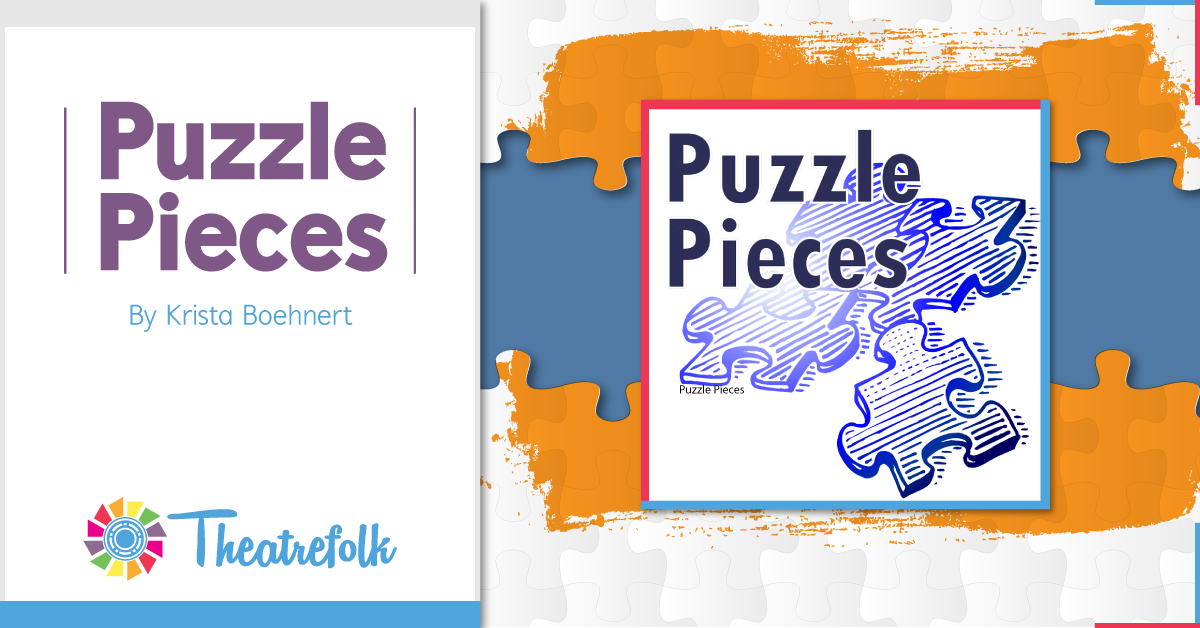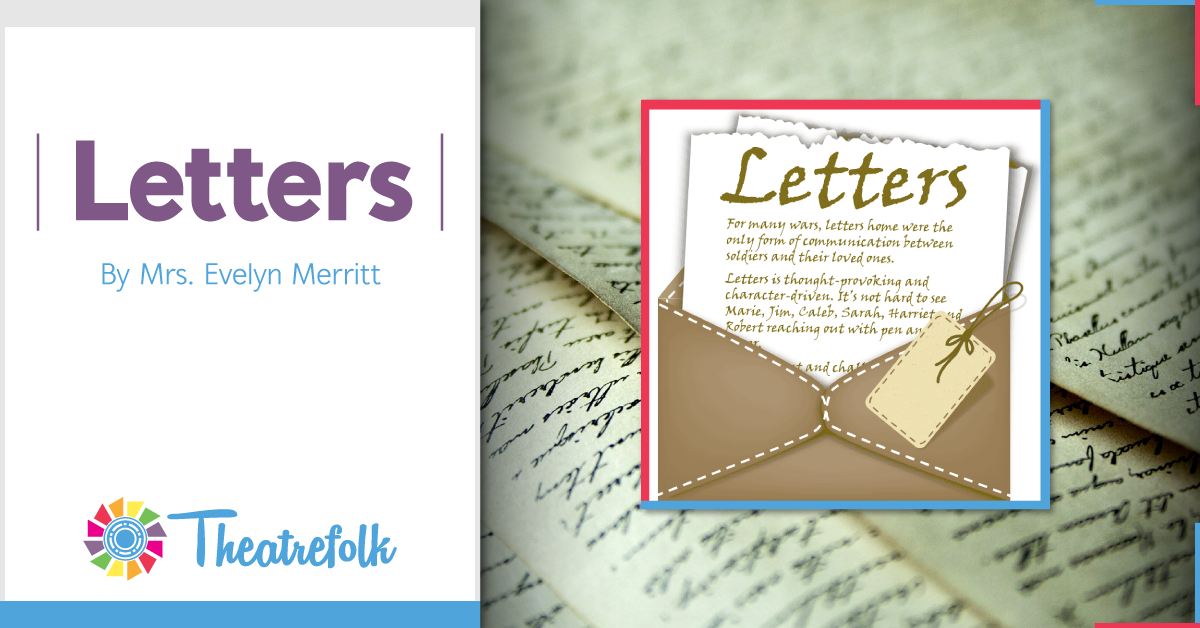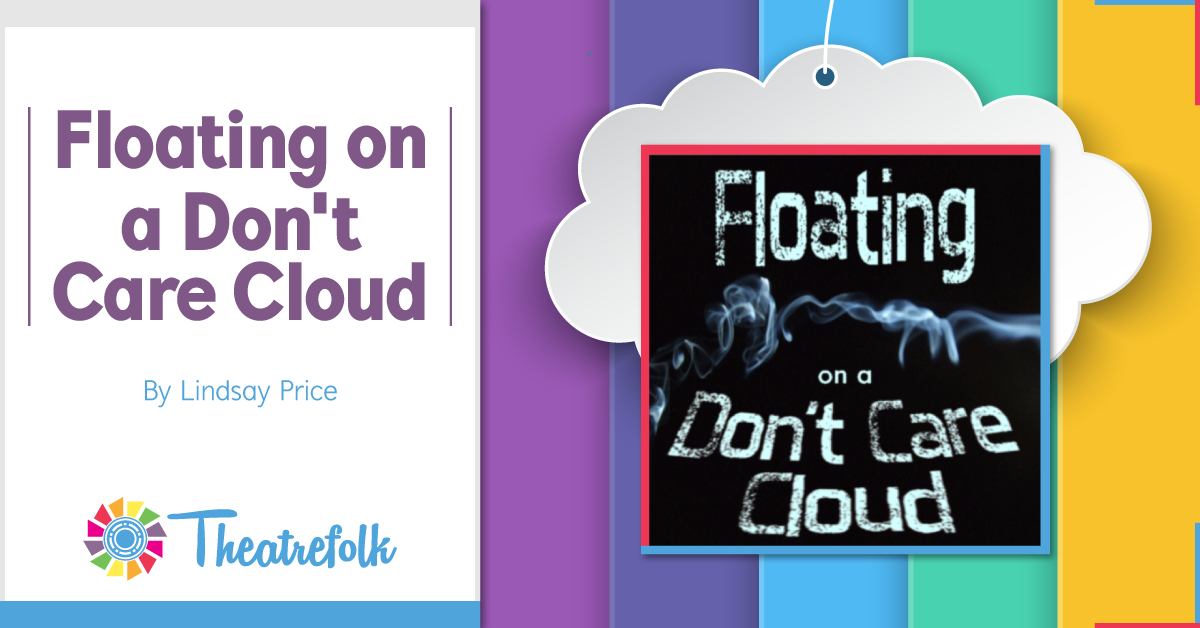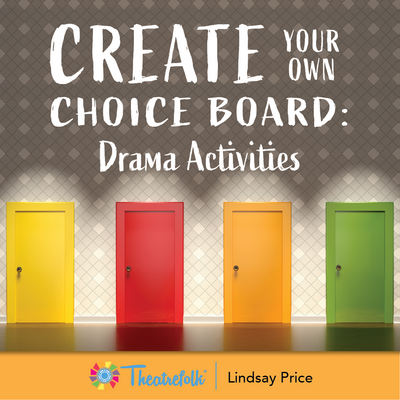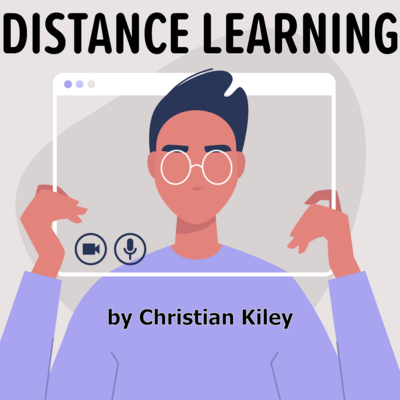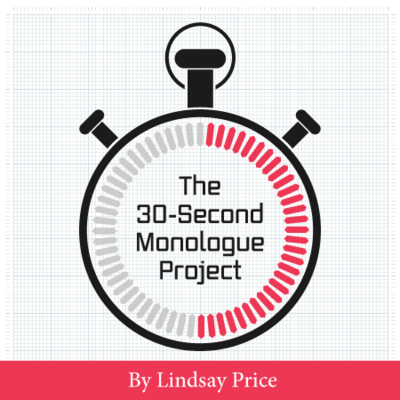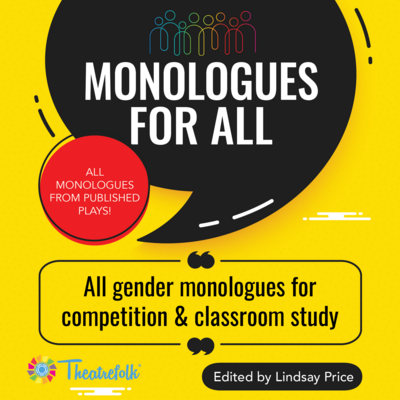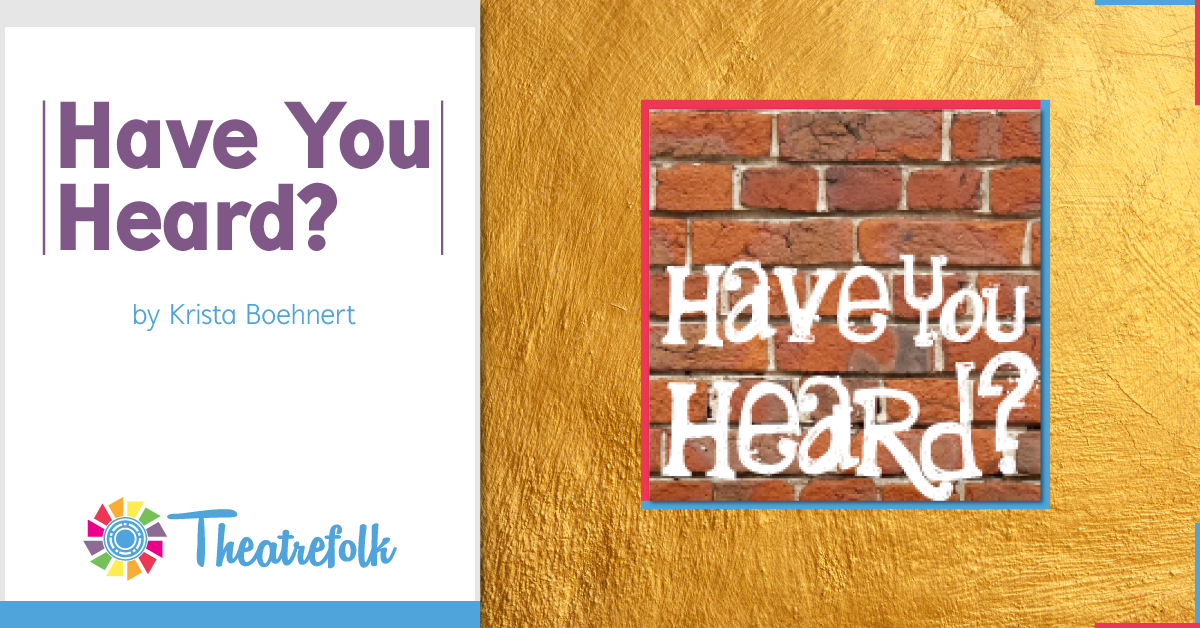
Theatrefolk Featured Play – Have You Heard? by Krista Boehnert
Welcome to our Featured Play Spotlight. If you’re ready to explore the power of the rumour, you’ll want to check out Have You Heard? by Krista Boehnert. This monologue-based one-act drama is extremely relatable and a great way to stretch your performers.
Did you hear? Have you heard? Promise not to tell anybody?
Everybody knows a secret. Some keep them quiet. Some let them loose. Some make them larger than life. Secrets, lies and rumours are the subject of Have You Heard?
This monologue-based play follows what happens in a school when rumours and secrets spin out of control. What makes a secret more powerful: When it’s the truth? Or when it’s a lie?
Why did we publish this play?
Have You Heard? not only presents a great acting challenge, but also a directing challenge. And to top it all off, it has a thought-provoking theme. It’s a one, two, three punch and that’s why we published it. If you’ve got a small program, or you’re doing multiple one acts, or you want to stretch your group in competition, have a look at this play.
Why is this play good for online platforms?
This play is monologue based – all the characters share the story through individual monologues. This makes it ideal for an online platform performance where students are in their own spaces.
Let’s hear from the author!
1. Why did you write this play?
I wanted to explore a couple of things with this piece. First was the power of rumour. Rumours grow and change and morph as more and more people breathe life into them. When rumours gain momentum it’s hard to find the truth. Things get murky. I wanted to look at all the various angles of that.
The other thing I wanted to present with the piece was a play where the two main characters never set foot on the stage. They don’t have any lines whatsoever. The characters you do meet are forced to speculate on the motivations and feelings of Josh and Mr. Pender, but the audience never hears from them directly. The audience is ultimately left to formulate their own opinions of what the truth is.
2. Describe the theme in one or two sentences.
A not-so-innocent lie is believed to be true. The ripple effect leaves no one untouched.
3. What’s the most important visual for you in this play?
The opening and closing scenes where the cast appears as an ensemble. For the majority of the play they appear individually, but in those opening and closing moments they’re united in their vulnerability and strength.
4. If you could give one piece of advice for those producing the play, what would it be?
It’s a monologue-based play, but don’t be shy about involving the cast throughout. There are many opportunities for the whole cast help bring the monologues to life through tableau, silently acting the story as a character tells it, small interactions with the speaking character like placing a comforting arm around their shoulders as they speak, etc. The script lends itself to collaborative staging despite its monologue-based structure.
5. Why is this play great for student performers?
On the content side, I think its extremely relatable. Openly talking about the impact of rumours is a good way to shine light on something we all grapple with.
On the performance side it’s a great opportunity to work with monologues. It allows students to really grow a character, and in a different way than they’re used to – through dialogue with other characters. With this play, they must build their character using the clues in the monologue and develop it for themselves from there.
In addition to character development, it’s also a great acting challenge for learning and performing long sections of text. The experience of performing a piece like this will help build skills for more complex performances in the future, like Shakespearian soliloquys.
6. Do you have any tips for those looking to perform this play online?
Both Have you Heard? and Puzzle Pieces? lend themselves nicely for online performance. As a monologue-based play, it allows for that intimate connection between the audience and a single performer. Settings in the performance space provider (such as Zoom) can be set to highlight the speaker, which results in the performer filling the whole screen, rather than the audience seeing all actors at once, if the director wishes to present it this way.
The plays are flexible, however, and do lend themselves to an ensemble performance as well. While actors are performing their monologues, the remaining actors can support the performances in a variety of ways. The director and cast can choose if all actors participate, or if only a select number do. If not all actors are participating in the scene, the director can ask them to simple turn and face their back to their camera, or walk out of frame thus “leaving the stage.”
The staging for Have you Heard? and Puzzle Pieces is flexible regardless of the staging environment – live, virtual, live-streamed. In their simplest form, each scene can be performed with only the actor(s) in the scene who are speaking being “on stage” (or on screen depending on the scenario). The bulk of both plays are monologues, so for the majority of the play, you could have a single actor on stage/screen.
To enrich the performance experience for the audience, I would recommend engaging cast members to enhance the monologues by employing tactics such as mime, tableaux, use of props and costume add-ons, virtual backgrounds and reaction buttons. This creates a space where the audience and the cast are all part of each “monologue moment” and heightens the impact of each characters’ story/experience by bringing it more fully to life.
Related Articles
Create Your Own Choice Board: Drama Activities
by Lindsay Price
Choice boards give students the opportunity to choose how they want to learn a particular subject. Create Your Own Choice Boards: Drama Activities can help encourage your students' independence by allowing them to take an active role in their learning.
Distance Learning
by Christian Kiley
A play about trying to survive and thrive in a virtual classroom.
The 30-Second Monologue Project
by Lindsay Price
Give students the confidence, skills and tools they need to master the monologue with The 30-Second Monologue Project. This four-lesson unit guides students from the first moment to a successful performance.
Monologues for All
by Lindsay Price
Many monologue books have monologues with only male- or female-identified characters. This resource allows students to infer the identity of the character.
